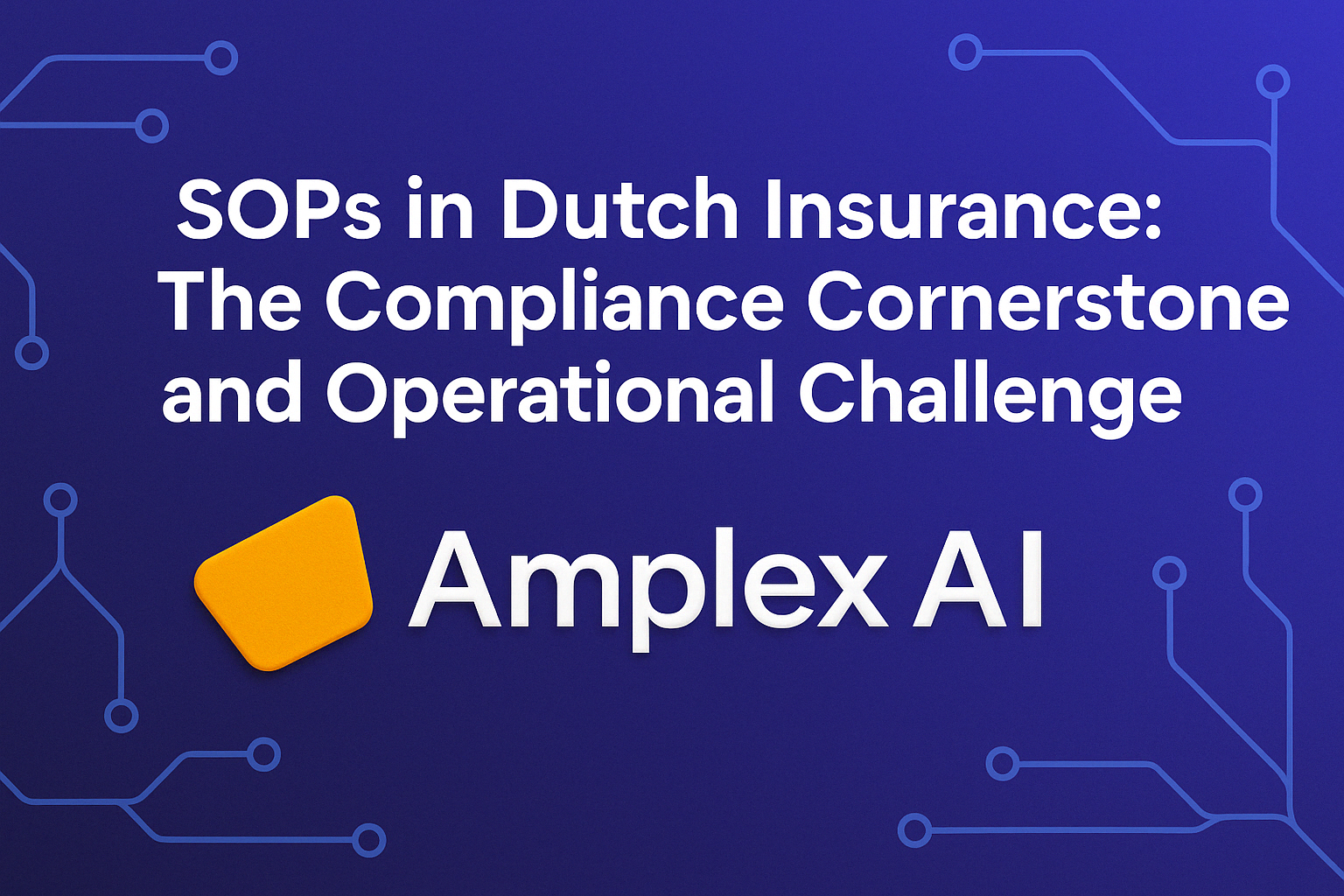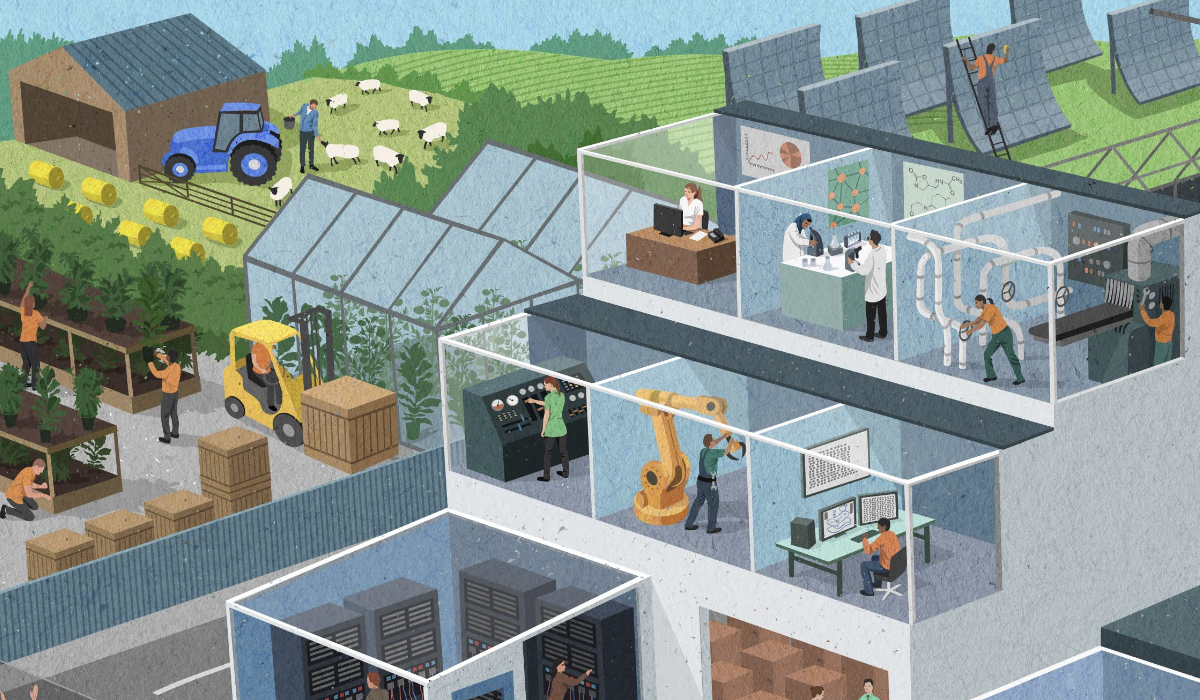The Future of Automation: How AI Agents are Changing the Game
Automation has long been a cornerstone of business efficiency, but the rise of AI agents is set to revolutionize how we think about and implement it. AmplexAI, a collaborative entity that combines the expertise of Dr. Hernani Costa, Co-Founder and CEO, with its vision for AI-driven solutions, is at the forefront of this transformation, helping businesses understand and harness the power of AI agents to achieve unprecedented levels of automation.
The Dawn of the AI Agent
Traditional automation relies on pre-defined rules and workflows, often requiring significant manual configuration and limited adaptability. AI agents, however, introduce a new paradigm. Powered by sophisticated technologies like Memory, Computation, and Perception (MCP), AI agents can perceive their environment, process information, make decisions, and take actions to achieve specific goals. This capability allows them to handle complex tasks, adapt to changing circumstances, and even learn and improve over time.
Key Components of AI Agent Capabilities
-
Memory: AI agents can store and retrieve information, enabling them to maintain context and learn from past experiences.
-
Computation: They possess the ability to process data, perform calculations, and reason logically to solve problems.
-
Perception: AI agents can interpret sensory inputs, such as text, images, and speech, allowing them to understand and interact with the world around them.
These components enable AI agents to move beyond simple automation tasks and tackle more complex challenges.
AI-Orchestrated Flows vs. Traditional Automation
The difference between traditional automation and AI-orchestrated flows is significant. Traditional automation follows a rigid, linear path, while AI-orchestrated flows are dynamic and adaptable. AI agents can adjust their actions based on real-time data, handle exceptions gracefully, and optimize processes on the fly. This flexibility unlocks new possibilities for automation in areas that were previously too complex or unpredictable.
Real-World Applications of AI Agents
Developers are already harnessing the power of AI agents to build a variety of intelligent tools:
-
Intelligent Coding Assistants: AI agents can assist developers with code generation, debugging, and documentation, significantly accelerating the development process.
-
Data Analysis Tools: AI agents can automate data cleaning, analysis, and visualization, enabling businesses to extract valuable insights from large datasets more efficiently.
-
Autonomous Task Agents: AI agents can manage complex tasks, such as scheduling, project management, and customer support, freeing up human workers to focus on more strategic activities.
Transforming Business Operations with AI Agents
The potential for AI agents to transform business operations is vast:
-
Natural Language Automation: AI agents can automate communication tasks, such as email responses, customer inquiries, and report generation, using natural language understanding and generation.
-
AI-Augmented CRM and Support: AI agents can enhance CRM systems by providing personalized customer interactions, automating support workflows, and predicting customer needs.
-
Dynamic Process Management: AI agents can optimize and manage complex business processes, such as supply chain management, logistics, and financial operations, adapting to changing conditions and improving efficiency.
Dr. Costa, a leading AI strategist, envisions a future where AI agents are seamlessly integrated into every aspect of business, driving a new era of productivity and innovation.
Challenges and Limitations of AI-First Automation
While the potential of AI agents is undeniable, it's important to acknowledge the challenges and limitations:
-
Security Concerns: Ensuring the security and privacy of data handled by AI agents is paramount. Robust security measures and ethical guidelines are essential.
-
Reliability Issues: AI agents, like any software, can experience errors or unexpected behavior. Careful testing and monitoring are crucial to ensure reliability.
-
Cost Considerations: Implementing AI agent automation can involve significant upfront investment in technology and development. Businesses need to carefully evaluate the ROI.
-
Need for Specialized Skills: Developing and deploying AI agents requires specialized skills in AI, software engineering, and data science. Businesses may need to invest in training or hire new talent.
The Evolving Relationship with No-Code Tools
AI-driven automation is not meant to replace traditional no-code tools entirely. Instead, AI agents can augment and enhance no-code platforms, providing them with greater flexibility, intelligence, and adaptability. The future of automation likely involves a combination of both approaches, allowing businesses to leverage each of their strengths.
Embracing the Future of Automation
AmplexAI believes that businesses should embrace AI agents' potential to drive innovation and efficiency. Dr. Costa advises starting with small-scale pilot projects to test and evaluate the technology in a controlled environment. This allows organizations to learn, adapt, and gradually scale their AI agent initiatives.
The future of automation is here, and AI agents are leading the way. AmplexAI is equipped to help your organization navigate this exciting landscape. If you need help identifying a pilot project for automation or want to explore how to use AI agent automation for your current workflows, contact us today for a consultation.
 By
By


